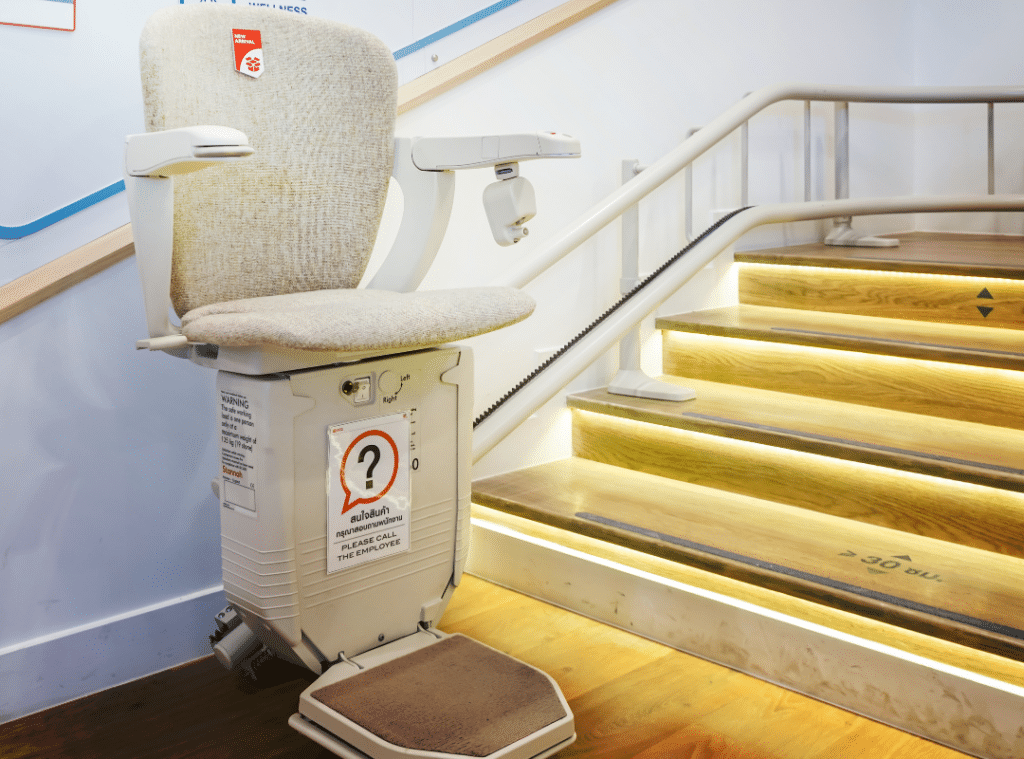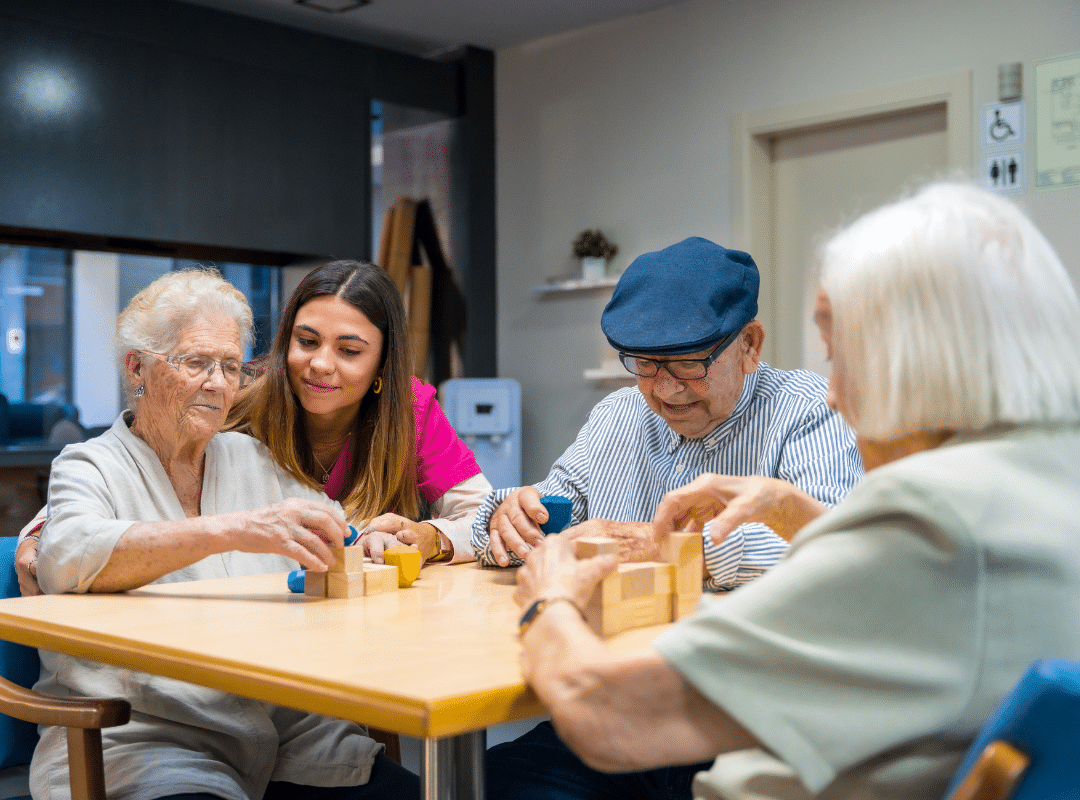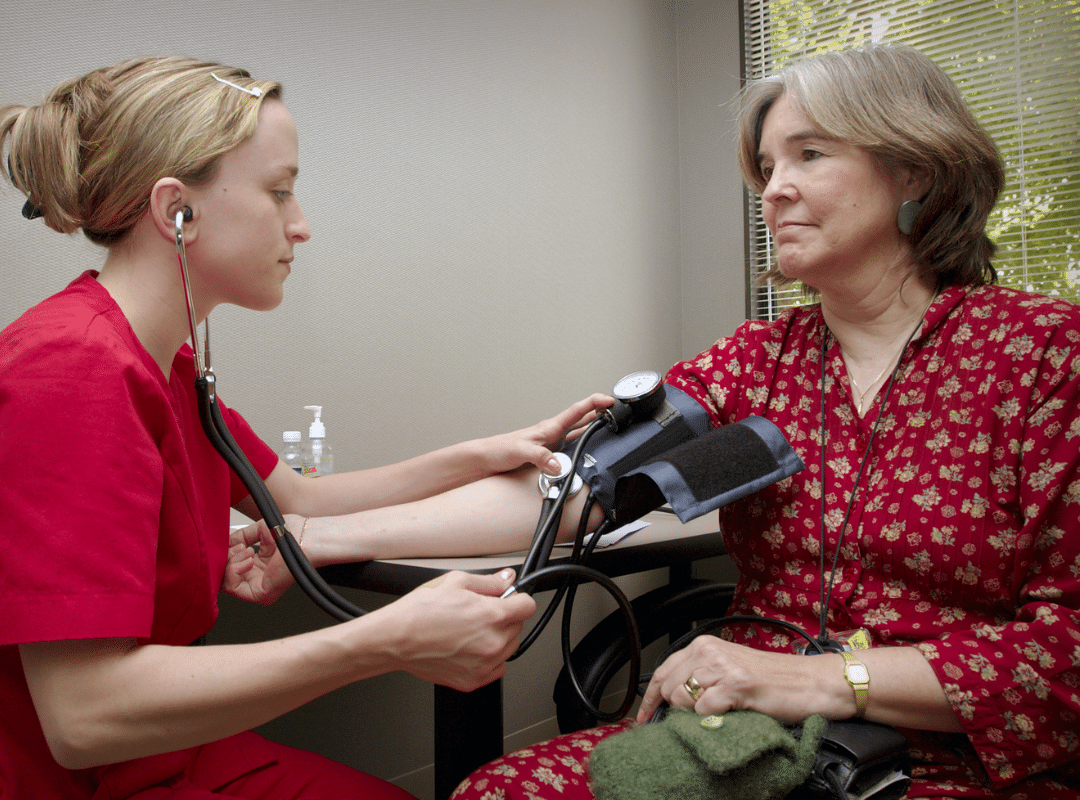Are Senior Living Communities Growing? The Facts
You might be surprised to learn that senior living communities, such as those offered by Lakeview Senior Living, are indeed growing, with occupancy rates rising considerably in recent months. As the Baby Boomer generation ages, the demand for independent and assisted living options has surged, particularly in urban areas like Boston. Yet, despite this growing need, new construction isn’t keeping pace, leading to potential gaps in availability. What does this mean for future trends and investments in senior care? The implications could reshape the landscape of senior living in ways you might not expect.
Are senior living communities growing
The growth of senior living communities is evident, driven by increasing demand and occupancy rates. You’ve likely noticed that occupancy rates have risen by 0.7% from Q2 to Q3 2024, reaching 86.5%. This uptick reflects a broader trend, with total occupied units in 31 NIC MAP Primary Markets exceeding 611,000.
Independent living occupancy stands at 87.9%, while assisted living sees a slightly lower rate at 85.1%, yet gains in assisted living outpaced independent living during Q3.
As the aging Baby Boomer population continues to swell, demand for senior living options is set to surpass pre-pandemic levels by the end of 2024. Locations like Boston and Baltimore show the highest occupancy rates, at 91.3% and 89.2%, respectively, highlighting a clear regional disparity.
However, you must also consider the challenges ahead, such as insufficient new construction at its lowest since 2009. This imbalance between demand and supply could lead to a potential crisis if strategic planning isn’t prioritized. Furthermore, social connection within these communities plays a vital role in enhancing residents’ quality of life.
Retirement homes change in demand
As demand for senior living communities increases, retirement homes are experiencing notable shifts in preference and occupancy dynamics. The landscape is changing due to several factors that reflect the evolving needs of older adults.
For instance, the occupancy rates in independent living have reached 87.9%, while assisted living has seen a remarkable uptick at 85.1%. This indicates a growing preference for communities offering various care options.
Consider these trends:
- Aging Population: The increasing number of Baby Boomers is driving demand, with the 65-plus demographic expected to grow considerably by 2060.
- Service Specialization: Many seniors opt for communities focusing on specific care types, such as memory care or assisted living.
- Community Appeal: Retirement homes enhance their offerings to include amenities promoting social engagement and attracting residents.
Such shifts highlight an urgent need for strategic planning in retirement home offerings. Additionally, the emphasis on personalized care plans ensures that each resident’s unique needs are comprehensively addressed.
Senior housing market
Senior housing markets are witnessing a significant transformation, driven by a surge in demand and changing demographics. As the aging Baby Boomer population grows, occupancy rates rise, reaching 86.5% in Q3 2024, with independent living at 87.9% and assisted living at 85.1%. These figures reflect not just recovery post-pandemic but a shift in how older adults view their living arrangements.
However, the market faces challenges. New senior housing construction has hit its lowest levels since 2009, with only 7,100 new spaces initiated. This insufficient development pipeline may not meet the projected demand, expected to surpass pre-pandemic levels by the end of 2024.
Regions like Boston and Baltimore show occupancy rates above 89%, indicating strong interest, while cities like Atlanta and Las Vegas lag. The economic landscape, aided by recent interest rate cuts, presents opportunities for investment in affordable senior housing. By understanding these trends and actively engaging in strategic planning, you can contribute to shaping a responsive and sustainable senior housing market that meets the needs of an expanding demographic. Furthermore, the demand for assisted living options is expected to increase as more seniors seek environments catering to their needs and preferences.
Retirement homes change in demand
A notable shift is occurring in the demand for retirement homes, driven largely by the evolving preferences of the aging Baby Boomer population. As this demographic ages, they’re looking for homes that offer more than just a place to live; they want vibrant communities that cater to their lifestyle and health needs.
Key factors influencing this change include:
- Increased preference for independent living: Many seniors prioritize autonomy while still seeking social connections.
- Growing demand for assisted living: With the rise in health-related needs, seniors are leaning towards communities that provide personalized care.
- Emphasis on wellness and lifestyle amenities: Features such as fitness centers, dining options, and social activities are becoming essential.
The occupancy rates reflect this trend, with independent living at 87.9% and assisted living at 85.1%.
As Baby Boomers continue to seek supportive environments, the demand for retirement homes is predicted to surpass pre-pandemic levels by 2024. Additionally, these communities are increasingly focusing on personalized healthcare plans to enhance residents’ overall quality of life.
This evolving landscape presents opportunities for communities to adapt and innovate, ensuring they meet the needs of a generation that values independence and community engagement.
Senior living investment
Investors are increasingly recognizing the potential of the senior living sector as a robust area for growth and profitability. With the U.S. population of 65 and older projected to outnumber children by 2034, the demand for senior living solutions will skyrocket.
The National Council for Senior Housing indicates that the sector has historically delivered strong returns, outperforming other property types with a 12.1% annualized return since 2009.
However, the market remains fragmented, with over 50% controlled by small operators, indicating ample opportunities for larger investments and strategic partnerships. As occupancy rates rebound post-pandemic, particularly in assisted living, the need for innovative housing solutions becomes increasingly crucial.
Interest rate cuts from the Federal Reserve further enhance this scenario, making it a favorable time to invest in affordable senior housing. Additionally, the limited construction initiated in recent years raises concerns about future supply, emphasizing the need for investment in new communities.
Assisted living development
The growing demand for assisted living development aligns closely with the anticipated surge in the senior population, particularly as occupancy rates in this sector rebound post-pandemic.
As you consider the landscape, it’s essential to recognize that the need for innovative and supportive environments for older adults is escalating.
Here are a few key points to keep in mind:
- Increased occupancy rates: Assisted living occupancy has shown a notable rise, reaching 85.1%, surpassing that of independent living.
- Aging Baby Boomers: The demographic shift is significant, with the 65-plus population set to grow by nearly 69% by 2060.
- Market demand vs. supply: With new construction at its lowest since 2009, the development pipeline struggles to keep pace with rising demand.
Strategically addressing these factors can lead to creating communities that not only meet the needs of seniors but also foster a sense of belonging and care.
Senior living industry statistics
In analyzing senior living industry statistics, it’s clear that the sector is experiencing a vital moment marked by rising occupancy rates and shifting demographics. The occupancy rate increased by 0.7% from Q2 to Q3 2024, reaching 86.5%. This growth is largely driven by the aging Baby Boomer population, which greatly influences market demand.
Remarkably, independent living facilities recorded an occupancy rate of 87.9%, while assisted living facilities saw even higher rates at 85.1%, with gains outpacing independent living.
The demand for senior housing is expected to surpass pre-pandemic levels by year-end 2024, indicating a robust recovery. However, new senior housing construction is lagging, as current levels are the lowest since 2009, with only 7,100 new spaces initiated. This discrepancy between rising demand and insufficient supply highlights the urgency for strategic planning in development.
Furthermore, certain markets exhibit considerable variance in occupancy, with cities like Boston achieving rates as high as 91.3%, while others, such as Las Vegas, struggle at 79.2%.
Understanding these statistics is essential for those committed to serving the senior community effectively.

How many seniors live in retirement communities
As the senior living sector grows, understanding how many seniors currently reside in retirement communities sheds light on the market’s dynamics. Recent statistics reveal that over 611,000 seniors live in retirement communities across 31 key markets, reflecting a significant demand that has been steadily increasing.
With occupancy rates for independent living at 87.9% and assisted living even higher at 85.1%, it’s clear that more seniors are opting for these supportive environments.
Key insights include:
- Aging Baby Boomers: This demographic shift is driving demand for retirement communities.
- Occupancy Trends: Strong occupancy rates indicate a robust market, especially in cities like Boston, where rates reached 91.3%.
- Diverse Needs: Seniors seek various levels of care, from independent living to assisted living, highlighting the need for tailored solutions.
In this evolving landscape, understanding the number of seniors in retirement communities informs market strategies and emphasizes the importance of providing quality living options.
Senior living industry outlook
The senior living industry is poised for significant growth, driven by a rapidly aging population and evolving care demands. By 2034, individuals aged 65 and older will outnumber children for the first time, presenting a unique opportunity for community developers and investors.
The occupancy rates for independent living and assisted living are promising trends, with assisted living gaining momentum as demand increases.
However, the construction of new senior housing remains challenging, with the lowest initiation levels since 2009. This limited supply means you’ll need to plan strategically to meet the expected demand, which is set to surpass pre-pandemic levels by the end of 2024.
Markets like Boston and Baltimore are already experiencing high occupancy rates, underscoring the importance of location in community development.
Economic factors like recent interest rate cuts can also foster growth in affordable housing solutions. As you navigate these changes, understanding market dynamics and the needs of your future residents will be essential.
This thorough approach will enhance investment potential and guarantee that communities can effectively serve the growing senior population.
Future trends in senior care
A significant shift in senior care is underway, driven by the increasing demand for personalized services and innovative living environments.
As you explore the future trends, you’ll notice several key areas gaining traction:
- Technology Integration: Advancements in technology will play a vital role in enhancing care delivery, from telehealth services to smart home systems enabling greater independence.
- Wellness-Centric Models: There’s a growing focus on holistic wellness that includes mental, physical, and social health, reflecting an understanding that quality of life extends beyond just medical care.
- Diverse Living Options: The market is moving towards more diverse and flexible housing solutions, including co-housing and specialized memory care, catering to the varying needs and preferences of seniors.
These trends indicate that the senior living sector is becoming more adaptive and responsive to the evolving needs of the aging population.
As you engage in this industry, consider how these trends can inform your strategies and initiatives, ensuring that you provide compassionate and effective care in a rapidly changing landscape.
To sum up, the senior living sector is undeniably on the rise, with occupancy rates hitting 86.5% and even soaring to 91.3% in hotspots like Boston. This growth reflects the urgent demand for quality retirement homes. Imagine this: over 1 million seniors currently reside in these communities, a number that’s set to climb as Baby Boomers age. As new construction lags, strategic investments are essential to guarantee these communities can meet the evolving needs of our aging population. For more information about Lakeview Senior Living, please call us at 541-994-7400.
Frequently asked questions
- How many assisted living facilities are there in the US?
There are approximately 28,900 assisted living facilities in the United States. These facilities serve over 800,000 residents, providing housing and supportive services to seniors who need help with daily activities while maintaining independence.
- What is the growth rate of the senior living industry?
The senior living industry has experienced steady growth, with an annual growth rate of approximately 5-6% in recent years. This expansion is fueled by the aging baby boomer population and increasing demand for specialized care options like memory care and assisted living.
- Is the senior care industry growing?
Yes, the senior care industry is growing rapidly. Factors such as longer life expectancy, a larger aging population, and increasing preferences for senior care services contribute to the industry’s sustained expansion.
- What is the outlook for senior housing in the US?
The outlook for senior housing in the US is positive, with strong demand expected to continue as the senior population increases. Innovations in care delivery, rising consumer expectations, and favorable demographic trends drive new developments and investment in the sector.






















